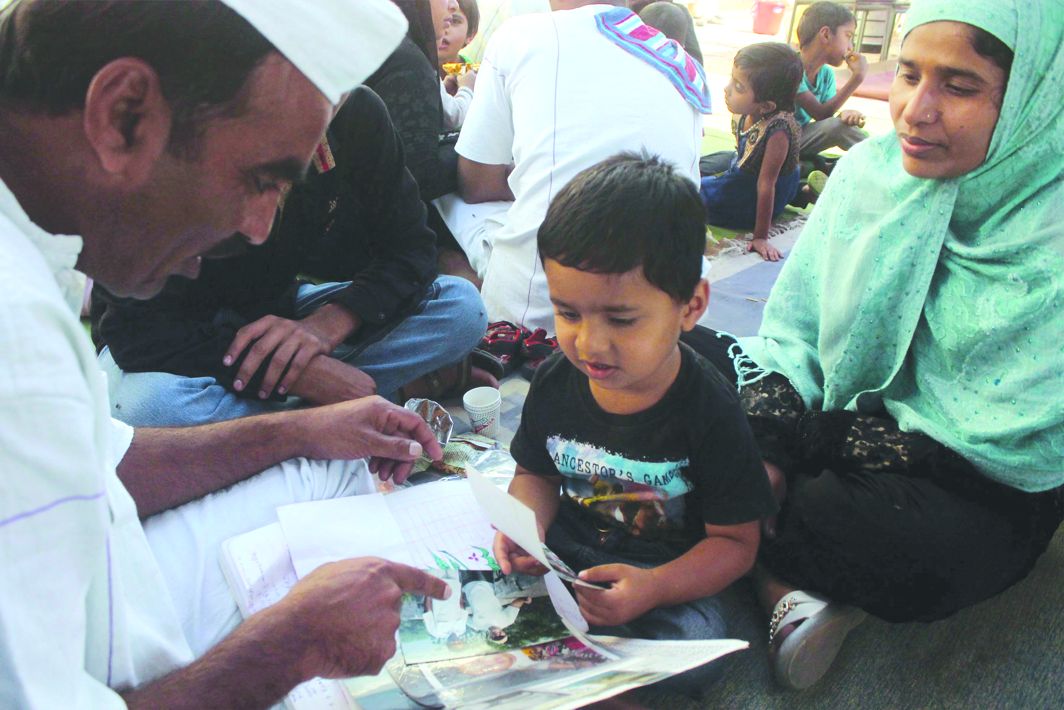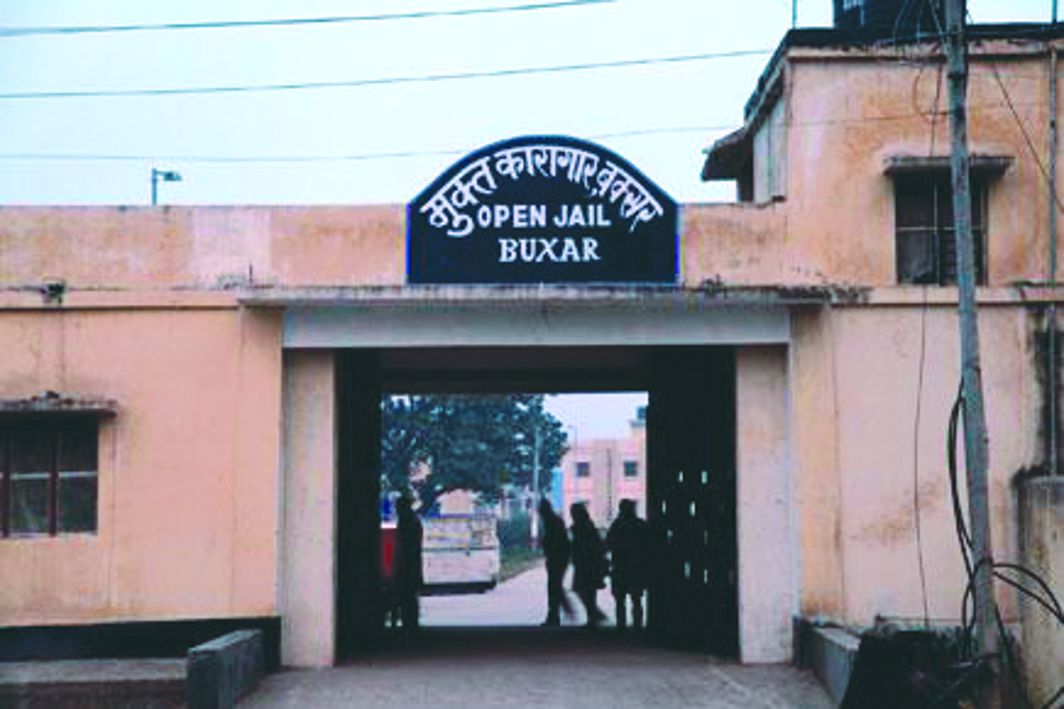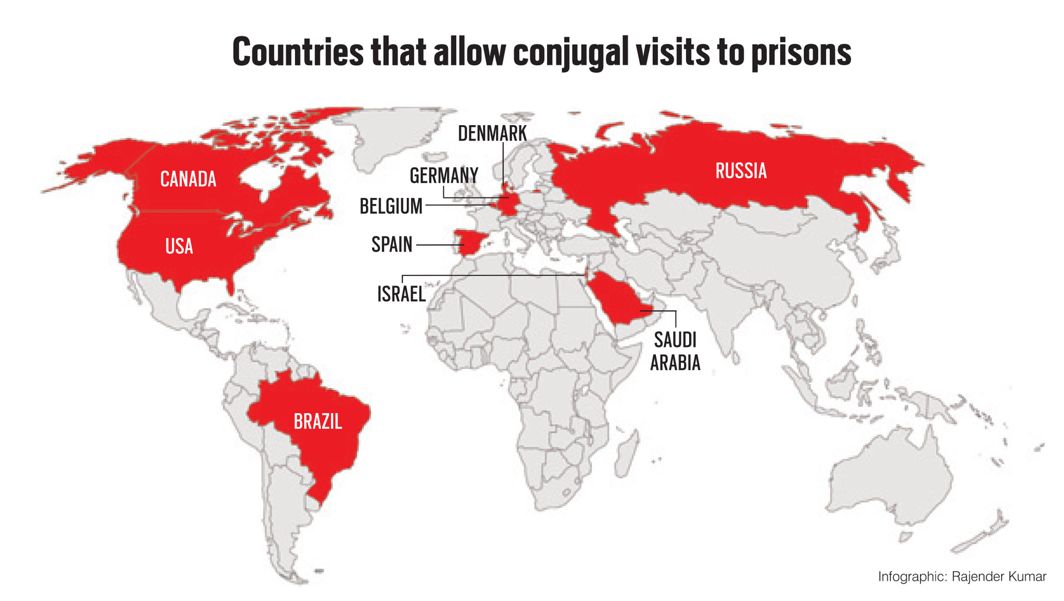In a sensitive order, a Madurai bench grants a convict two weeks’ leave to enjoy procreation rights and paves the way for more such liberal judgments in future
~By Venkatasubramanian
Nelson Mandela had said about prisons: “No one truly knows a nation until one has been inside its jails. A nation should not be judged by how it treats its highest citizens, but its lowest ones.” It is refreshing to find a high court order which draws inspiration from Mandela.
The reformative theory of punishment seeks to observe the dignity of a prisoner. The objective of incarceration, the reformative theory suggests, is to have a therapeutic impact on the convict, who would later return to society as a functional and responsible citizen. Anything which dehumanises the soul of the prisoner, therefore, needs to be discouraged, and alternative remedial measures tried.
Judiciary in India has always been torn between the compulsions of retributive justice and the reformative theory. In the case of heinous crimes, the judiciary favours the retributive theory, citing society’s cry for justice for the victim. However, judges who understand the merits of the reformative theory for bringing down the crime rate, seek to defend the human rights of prisoners even in the face of resistance by the State.
The Madurai bench of the Madras High Court comprising Justices S Vimala and T Krishnavalli delivered one such order in the habeas corpus petition of Mrs Meharaj, 32, wife of Siddique Ali alias Sulthan, 40, a convict in Central Prison, Palayamkottai, Tamil Nadu, and granted him leave for two weeks for her infertility treatment.
BASIC FREEDOM
Ali, who is undergoing life imprisonment for 18 years, was not able to consummate his marriage because of his custody. His wife, on the assurance of a doctor that it was possible to beget a child with the help of infertility treatment, first approached the High Court with a prayer to grant leave to her husband for 60 days. The Court directed the state government to consider granting him leave for a week from the date of receipt of the order. However, the state government declined for two reasons. First, it claimed that neither the inspector of police, nor the probation officer had recommended the leave. Secondly, it took the bizarre stand that the personal life of the detenu would be put to danger if he was granted leave.

To resolve the issue, the bench relied on a Supreme Court’s judgment in Sunil Batra v Delhi Administration (1980), in which it was held that a prisoner wears the armour of basic freedom even behind bars and that on breach thereof by lawless officials, the law would respond to his distress signals through “writ” aid. The Indian human, the Supreme Court held in that case, has a constant companion—the Court armed with the Constitution. The weapon, it said, is “habeas”, the power is Part III of the Constitution and the projectile is the Court’s judgment in the Sunil Batra case. No iron curtain, it said, could be drawn between the prisoner and the Constitution.
SECURITY OF PRISONER
The Madurai bench thus reasoned that when the rights of the prisoner are not protected, the Court can exercise the writ jurisdiction. Thus, it found that the main objection of the probation officer in this case—the security of the prisoner would be in danger if he was granted leave—had no logical basis. The probationary officer in his report said that the whereabouts of the family of the victim who died as a result of the crime for which the prisoner was convicted are not known.
The High Court bench reasoned that if at all there was any danger to the prisoner, it could be mainly expected from the family of the deceased. But as the whereabouts of that family were unknown, the threat to the life of the convict was very remote. If there was a threat, the bench said, the prisoner should be saved by the police during his leave.
The state government then claimed that there is no provision under the Jail Manual for grant of leave for infertility treatment of the prisoner’s spouse. Rule 20 of the Tamil Nadu Suspension of Sentence Rules, 1982, prescribes eight grounds. The bench noted that the seventh ground is “any other extraordinary reason”. The bench, therefore, reasoned that in the absence of any other rule, providing for the release of the prisoner for procreation can be interpreted as covered under extraordinary reasons. “Even assuming that this reason is not extraordinary, Article 21 of the Constitution—guaranteeing right to life and liberty of every person—would be very much available for the Court to consider the wife’s claim,” the bench held.
The bench justified its decision by saying: “Man is a social animal. He needs a family as well as a society to live in. The man needs both to share his emotions and feelings… Prisoners would like to share their problems with their life partner(s) as well as with the society. Just because they are termed as prisoners, their right to dignity cannot be deprived.”
CONJUGAL VISITS
The bench continued: “The concept of reformative theory is best, as it says that the human being to be reformed would become the productive member of the society. If that is to be done, prisons have to be transformed as homes for the purpose of giving training morally as well as intellectually, so that the prisoners are denuded of the qualities of a criminal. The psychologists and psychiatrists believe that the frustration, tension, the ill-feelings and the heart-burnings can be reduced and a human being can be better constructed if they are allowed conjugal relationship even rarely. Therefore, while considering the merits and demerits of allowing conjugal visits or permitting leave for the purpose of artificial insemination, the advantages are more than the disadvantages.”

The bench further reasoned that conjugal visits lead to strong family bonds and keep the family functional, rather than the family becoming dysfunctional due to prolonged isolation and lack of sexual contact.
The bench referred to reports of innumerable cases of HIV/AIDS in jails because of sexual intercourse between persons belonging to the same gender. This “evil”, it said, happens because of deprivation of conjugal relationship for a prisoner. This mention could, however, have been avoided as it raises questions about the bench’s sensitivity to the sexual orientation of prisoners.
“Therefore, it is a right time that the Government should constitute a committee to consider the possibility of providing conjugal visit, and analyse the merits and demerits of permitting conjugal visits, and to provide the facility for conjugal visits to eligible persons, subject to the precautions/ safety measures to be taken,” the bench said in its order. Conjugal visits or extended family visits to prisons, the bench said, maintain the relationship between the prisoner and his family, reduce recidivism and provides an incentive for good behaviour. As the wife is not under incarceration, but a suffering person, her legitimate expectation to have a child cannot be declined, it suggested.
The bench chose the option of suspension of the sentence rather than parole to grant the prisoner temporary leave initially for a period of two weeks from January 20 to February 3. Prison rights activists, however, are of the view that the parole option for this purpose could have helped the prisoner if it was included in the sentence of imprisonment, and thereby the prison term could have been reduced.
The bench directed the prison authorities to provide a police escort in civil dress to the prisoner during the leave. The bench made it clear that it could consider extending the leave if preliminary investigation by doctors reveals that there is a possibility of having a child and further treatment is necessary. It also gave liberty to the petitioner’s wife to request the jail authorities and move the Court as and when necessary.
OTHER CASES
The concept of conjugal visits to prisons has been adopted by Canada, Germany, Russia, Spain, Belgium, Spain, Saudi Arabia and Denmark. The US, Brazil and Israel also allow same sex conjugal visits to some extent.
In 2015, the Punjab and Haryana High Court considered the plea of a prisoner couple, Jasvir and Sonia, who were awarded death sentence and life imprisonment, respectively, for conjugal rights. The state of Punjab opposed their plea on the ground that the Prisons Act, 1894 contains no provision to permit “conjugal visitation”, and that Section 27 of the Act mandates segregation of male and female prisoners.
Even “artificial insemination” as a viable and alternative solution, as suggested by the couple, was not acceptable to the Punjab government. It claimed that the Prisons Act and the Punjab Jail Manual do not allow husband and wife convicts to be in the same cell or artificial insemination of convicts.
In the Punjab case, the amicus curiae, Anupam Gupta, submitted to the Court that right to life cannot be taken away till the execution of the prisoners. Until then, the right to life includes all rights except the freedom to move, which has been taken away by way of punishment of law. The High Court saw no reason why the authorities should shy away from releasing convicts temporarily on parole, furlough, etc. for conjugal visitations and procreation. Right to procreation, the Court held, survives incarceration, is traceable and squarely falls within the ambit of Article 21 of the Constitution, read with the Universal Declaration of Human Rights.
The High Court had also held in this case that there is no inherent conflict between the right to procreate and incarceration, although the same is subject to reasonable restrictions, social order and security concerns. It directed the constitution of a jail reforms committee to formulate a scheme for creation of an environment for conjugal and family visits for jail inmates, and to identify those categories entitled to such visits. However, in the instant case, the High Court declined relief to the inmates because of space constraints in the prison and the fact that the couple had been sentenced for a heinous offence. This stance of the High Court was considered a contradiction in terms.
The Supreme Court is currently considering a proposal, submitted by activist Smita Chakrabortty to introduce two open prisons in every district of the country, and has directed the centre to hold talks with state governments to evolve a uniform policy for the purpose. Conjugal rights of prisoners could well be considered one of the objectives of such prisons.


